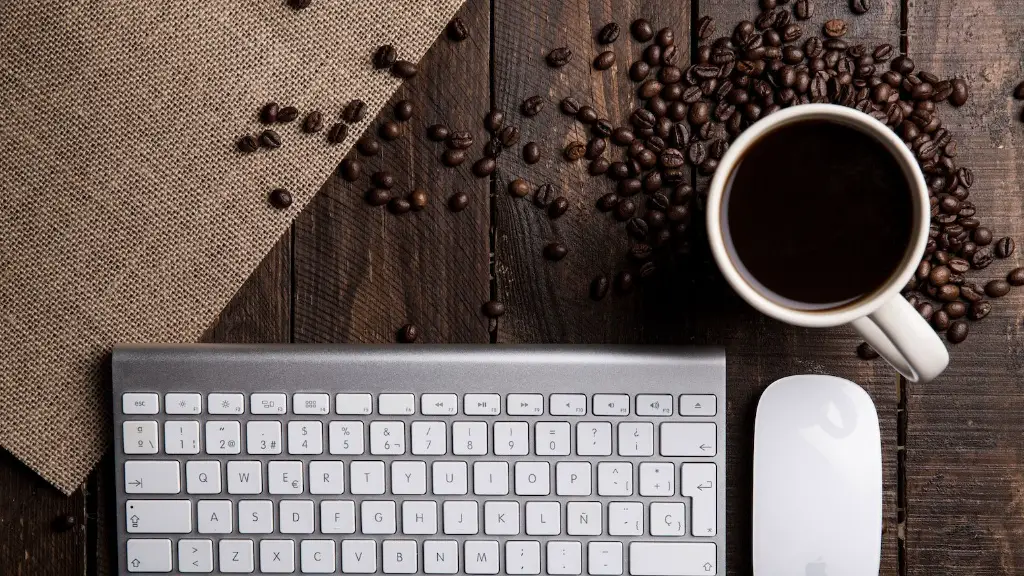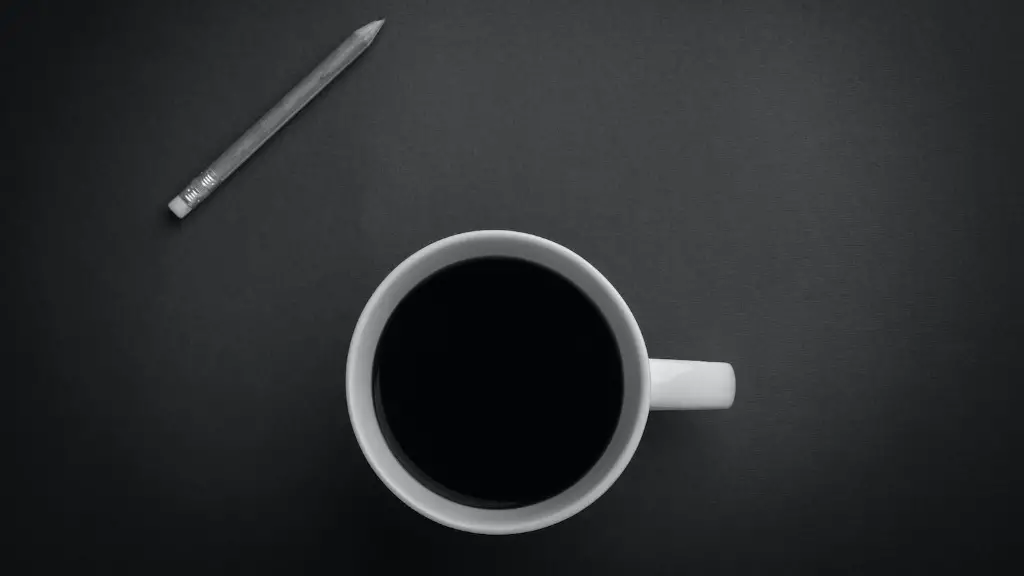Coffee is a beverage enjoyed by millions of people around the world. It can be a delicious and energizing pick-me-up for the morning or a great way to relax and socialize with friends during the afternoon. But should you drink coffee? That depends on your individual needs and preferences.
If you’re looking for an energy boost, coffee can be beneficial. The caffeine in coffee helps to stimulate your central nervous system, giving you more energy and focus. However, it’s important to be mindful of how much caffeine you consume in order to avoid any negative side effects.
If you don’t need the extra energy, drinking coffee may still have other benefits. Coffee contains antioxidants, which help protect your cells from damage caused by free radicals and may even reduce the risk of certain diseases. It also has been linked with improved cognitive performance, particularly in older adults.
Ultimately, whether or not you should drink coffee comes down to personal preference. If you enjoy it, there are potential health benefits that make it worthwhile. But if it doesn’t agree with your body or lifestyle, there are plenty of other beverages that can provide the same benefits without any negative side effects.
Risks of Drinking Coffee
Coffee is a widely enjoyed beverage that can have both positive and negative effects on one’s health. It contains caffeine, a stimulant that can increase alertness, concentration and wakefulness. However, excessive caffeine consumption can lead to restlessness, insomnia, irritability and an increased heart rate. People with heart conditions or anxiety may want to limit their intake. Coffee also contains certain compounds that can increase cholesterol levels in the body. Furthermore, drinking too much coffee may lead to dehydration due to its diuretic properties. This is especially true if you do not drink enough water throughout the day. Overall, it is important to consider your individual health needs before deciding whether or not you should drink coffee.
In moderation and in combination with other healthy lifestyle practices, coffee can be a great addition to your daily routine. However, it is important to remember that it should not replace other healthy habits like getting enough sleep and exercise or eating nutritious foods.
How Much Caffeine is in a Cup of Coffee
Knowing the amount of caffeine in a cup of coffee is important for those who need to limit their intake. A typical 8 oz cup of filter coffee contains approximately 95 mg of caffeine. Instant coffee has slightly less, approximately 76 mg per 8 oz cup. Espresso, on the other hand, has a much higher concentration of caffeine, with around 80 mg per single shot espresso (1 oz).
Whether or not you should drink coffee depends on your individual needs and preferences. Caffeine can provide an energy boost and some people enjoy the taste and experience of drinking coffee. However, too much caffeine can cause jitteriness, headaches, insomnia and other unpleasant side effects. Everyone’s sensitivity to caffeine is different so it’s best to start with lower amounts and observe how your body responds.
It’s important to be aware of how much caffeine you’re consuming each day. Keeping track can help you stay within healthy limits and get the full benefit from your daily cup or two of java!
Coffee and Sleep Quality
Coffee is often associated with keeping people awake, but can it affect sleep quality? Research suggests that caffeine intake can, in fact, have an effect on how well you sleep. Caffeine has a half-life of about 5-6 hours, meaning that it can take up to 12 hours for the effects of caffeine to completely wear off. This means if you consume coffee late in the day, it could still be impacting your sleep up to 12 hours later.
The type of coffee you drink and how much caffeine it contains can also impact your sleep. For example, espresso has double the amount of caffeine than regular drip coffee. Also, drinking too much coffee could lead to restlessness and difficulty falling asleep.
Although moderate amounts of caffeine may have some benefits when it comes to alertness during the day, it is best to limit your intake late in the day if you want to ensure good quality sleep. It is recommended that you avoid consuming caffeinated beverages at least six hours before bedtime. Doing so will help ensure your body has enough time to metabolize all the caffeine before bedtime and that you get good quality restorative sleep.
Best Time to Drink Coffee
Drinking coffee is a great way to fill up with energy and start the day. But when is the best time to drink coffee? Generally, the best time to drink coffee is between 10am and noon. Caffeine takes about 20 minutes to enter your bloodstream, so drinking a cup of coffee at this time will provide you with enough energy to get through your morning tasks. It’s also important to note that drinking too much coffee can interfere with your sleep patterns, so it’s best to avoid drinking it late in the afternoon or evening. By limiting your coffee intake to earlier in the day, you can ensure that you get enough restful sleep.
If you’re looking for an extra boost of energy during the day, try having a cup of green tea instead. Green tea has less caffeine than coffee and provides a more natural energy boost. You can also try eating an energizing snack or taking a short walk for an extra burst of energy.
How Does Caffeine Affect Your Heart?
Caffeine is a stimulant that affects the central nervous system, which can lead to an increase in heart rate and blood pressure. Studies have shown that drinking coffee can have beneficial effects on the heart, such as reducing the risk of stroke, heart attack, and even death from coronary heart disease. However, consuming too much caffeine can also have negative effects on your cardiovascular health. Caffeine has been linked to increased levels of stress hormones like cortisol and adrenaline, which can lead to an irregular heartbeat.
Individuals who are sensitive to caffeine may experience palpitations or chest pain after drinking coffee. People with existing heart conditions may also be at risk for increased heart rate or arrhythmia after consuming caffeine. It is important to talk to your doctor about your individual risks before adding coffee or other caffeinated beverages into your diet. If you decide to drink coffee, try limiting your intake to one or two cups per day in order to minimize any potential risks for your heart health.
Healthier Alternatives to Coffee
Coffee is a popular beverage that many people enjoy, but it can be high in caffeine, which has been linked to certain health risks. If you’re looking for a healthier alternative to coffee, there are plenty of options available. Tea is an excellent choice, and there are many different varieties that offer different levels of caffeine. Green tea, for example, is known for its antioxidant properties and can provide a boost of energy without the jitters associated with coffee. Other herbal teas like chamomile and rooibos are naturally caffeine-free and can have calming effects. Yerba mate is another popular choice that can provide a mild stimulant effect similar to coffee but with fewer side effects. Additionally, some people prefer to use natural energy drinks like matcha or kombucha for a healthy alternative to coffee.
If you’re looking for something hot and comforting without the caffeine, you may want to try warm milk or warm water with lemon or honey. These beverages can help you relax and have some calming effects without the stimulant effects of coffee. In addition, there are also other beverages such as herbal teas or fruit juices that can provide hydration and vitamins without the added caffeine of coffee.
When choosing an alternative beverage to coffee, it’s important to consider your individual needs and preferences. Everyone’s body responds differently to different beverages, so it’s important to experiment with various options until you find something that works best for you. Ultimately, it’s up to you whether or not you choose to drink coffee; however, there are plenty of healthier alternatives available if you’re looking for something different.
Wrap Up
In conclusion, whether you should drink coffee or not is ultimately a personal decision. It has both positive and negative effects on health, depending on how it is consumed. Coffee has many potential benefits, such as improved cognitive function and decreased risk of certain diseases. However, too much coffee can have negative consequences, such as an increased risk of heart disease and insomnia. In order to make the best decision for your health, it is important to be mindful of how much coffee you consume and the type of coffee you choose. Be sure to consult your healthcare provider before making any major changes to your diet.
Ultimately, drinking coffee can be beneficial in moderation—so if you like the taste and find that it helps boost your focus and energy levels throughout the day, then there’s no harm in enjoying a cup or two.





